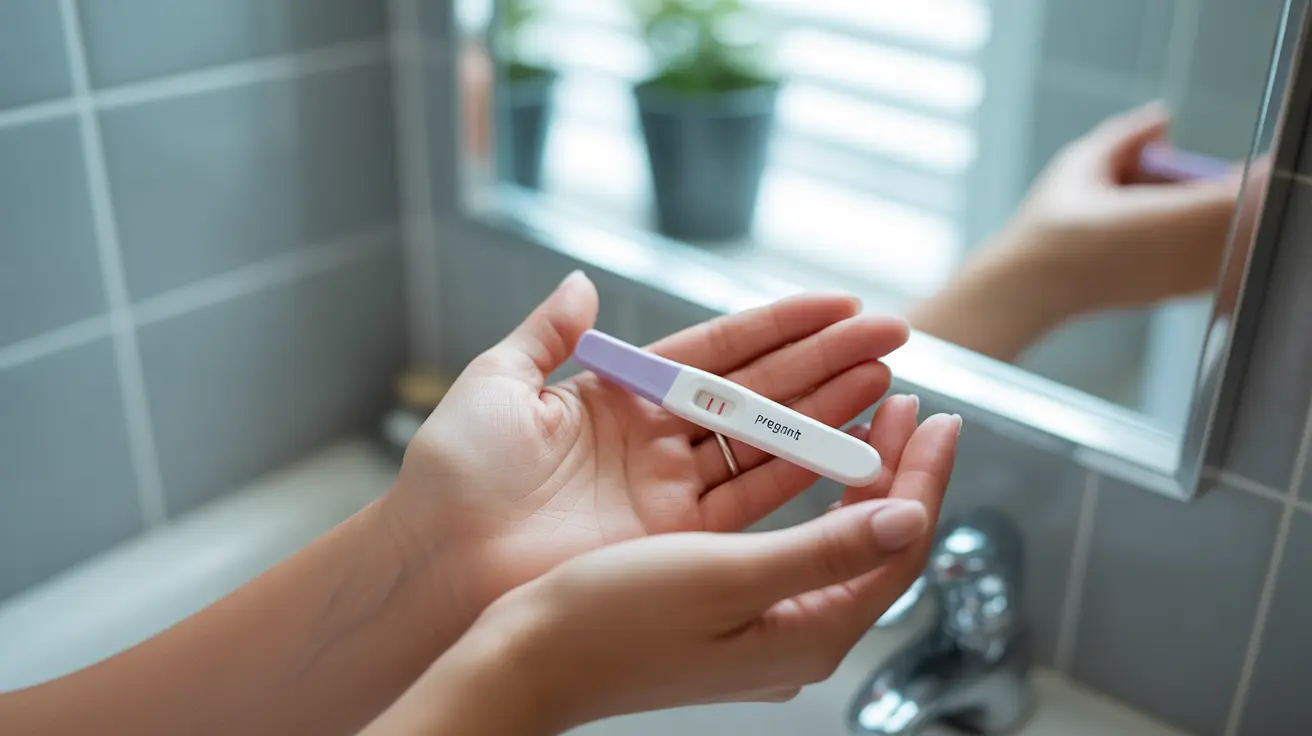Discovering you're pregnant at 4 weeks can be an exciting and sometimes overwhelming experience. This early stage of pregnancy marks a crucial time when many women first receive confirmation through a home pregnancy test. Understanding what to expect and which symptoms are normal can help ease anxiety and prepare you for the journey ahead.
At 4 weeks pregnant, your body is already undergoing significant changes, even though you might not notice all of them yet. Let's explore what's typical during this early stage and what steps you should take after getting that positive test result.
Understanding Early Pregnancy Tests
Home pregnancy tests detect the presence of human chorionic gonadotropin (hCG), a hormone that starts increasing rapidly after implantation. At 4 weeks, most tests are highly accurate when used correctly, especially with first-morning urine.
For the most reliable results, it's recommended to:
- Use first-morning urine
- Follow instructions carefully
- Wait the full recommended time before reading results
- Consider confirming with a second test
Common Symptoms at 4 Weeks Pregnant
Physical Changes
During this early stage, you might experience several physical symptoms, though some women may not notice any changes yet. Common physical signs include:
- Mild cramping
- Light spotting (implantation bleeding)
- Breast tenderness
- Fatigue
- Frequent urination
Digestive Changes
While morning sickness typically starts around 6 weeks, some women may begin experiencing digestive changes at 4 weeks, including:
- Mild nausea
- Food aversions
- Changes in appetite
- Bloating
What's Normal vs. What's Concerning
Normal Early Pregnancy Signs
It's perfectly normal to experience:
- Mild cramping similar to menstrual cramps
- Light spotting that's pink or brown in color
- Breast sensitivity
- Mood changes
- Mild fatigue
Warning Signs to Watch For
Seek immediate medical attention if you experience:
- Heavy bleeding (more than regular menstrual flow)
- Severe abdominal pain
- Dizziness or fainting
- Sharp, one-sided pain
Next Steps After a Positive Test
After getting a positive pregnancy test at 4 weeks, take these important steps:
- Schedule an appointment with your healthcare provider
- Start taking prenatal vitamins if you haven't already
- Review any medications with your doctor
- Make healthy lifestyle changes
- Document your symptoms and questions
Frequently Asked Questions
What symptoms should I expect with a positive pregnancy test at 4 weeks?
At 4 weeks, common symptoms include mild cramping, breast tenderness, fatigue, and possibly light spotting. However, many women may not experience noticeable symptoms this early.
How accurate are home pregnancy tests when taken at 4 weeks?
Home pregnancy tests are generally very accurate at 4 weeks pregnant, especially when using first-morning urine. Modern tests can detect even low levels of hCG hormone present after a missed period.
Is light spotting or cramping normal after a positive pregnancy test at 4 weeks?
Yes, light spotting and mild cramping can be normal at 4 weeks pregnant. This may be related to implantation or early pregnancy changes. However, heavy bleeding or severe pain should be evaluated by a healthcare provider.
When does morning sickness usually begin during early pregnancy?
Morning sickness typically begins around 6 weeks of pregnancy, though some women may experience it earlier or later. Not all women will experience morning sickness.
What should I do if I have heavy bleeding or severe pain at 4 weeks pregnant?
If you experience heavy bleeding or severe pain at 4 weeks pregnant, contact your healthcare provider immediately or seek emergency care. These symptoms could indicate complications that require immediate medical attention.




